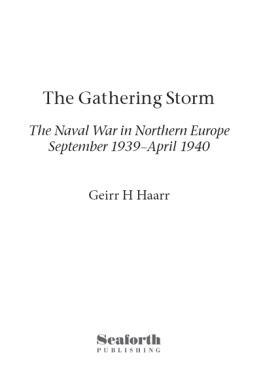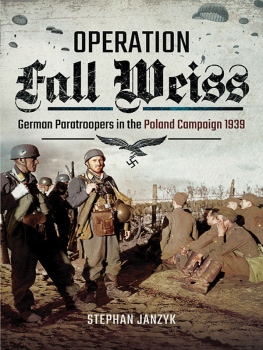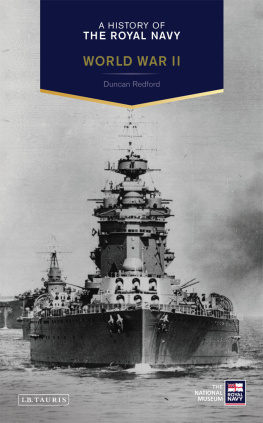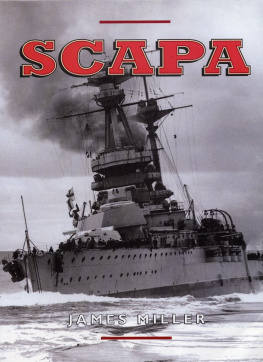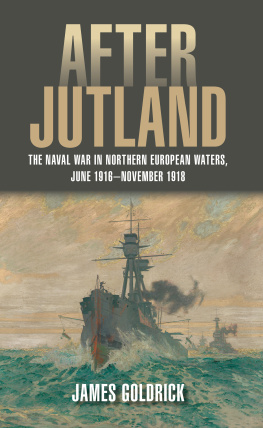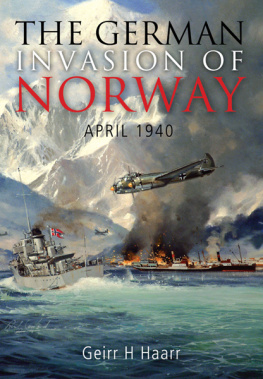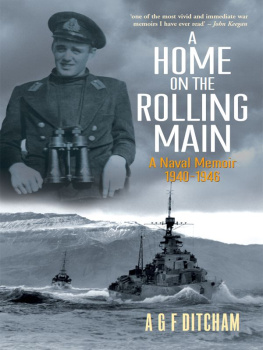It would seem that the eternal and sometimes elusive triangle of man, ship and ocean, particularly under the stress of war, produces the best qualities of courage and compassion, irrespective of the rights and wrongs of the conflict. In war it is inevitable that only one side can triumph but honour and self-sacrifice are not the attributes of the victors alone.
Douglas Reeman
To have anything more than entertainment value Naval maritime history must be analytical and critical. And it must, in so far as it is humanly possible, be truthful.
Naval Staff History , Vol. 1, Introduction

To the memory of Stoker Albert William Horse Goodey of HMS Havock and the others who served through these affairs
Copyright Geirr H Haarr 2013
First published in Great Britain in 2013 by
Seaforth Publishing,
Pen & Sword Books Ltd,
47 Church Street,
Barnsley S70 2AS
www.seaforthpublishing.com
British Library Cataloguing in Publication Data
A catalogue record for this book is available from the British Library
ISBN 978 1 84832 140 3
eISBN 9781473831315
All rights reserved. No part of this publication may be reproduced or transmitted in any form or by any means, electronic or mechanical, including photocopying, recording, or any information storage and retrieval system, without prior permission in writing of both the copyright owner and the above publisher.
The right of Geirr H Haarr to be identified as the author of this work has been asserted by him in accordance with the Copyright, Designs and Patents Act 1988.
Typeset and designed by JCS Publishing Services Ltd, www.jcs-publishing.co.uk
Printed and bound by CPI Antony Rowe, Great Britain
The Close-Range Gunners Lament
The wettest bloke out on the sea
Is he who sports an AA3
And really round the bend its true
Is the Matloe with an AA2
Now we of Wolsey (hallowed name)
Of E-boat Alley and Dunkirk fame
Have AA guns that sometimes work
By Hectors leave and pussers dirk
Point-fives forebridge-all stoppage three
Forebridge, Oerlikon-Jag in stap me
Dig out all day, all guns tip-top
Rewarded with, Snap, Crackle, Pop
When we try to crash our swede
We wake up screaming: Faulty feed
Plenty of Aim-off; not too much
Why dont you swap your job with Hutch?
Sometimes we fire at Left hand masts
And then the Skipper starts his blasts
Its Left and Over hear him sing
Youre porous, HIT the bloody thing
Just when were On the gun wraps up
So once again were sold a pup
Written in the North Sea in 1943 by twenty-three-year-old Ordinary Seaman Peter Buck Taylor, gunner onboard HMS Wolsey , a V&W destroyer.
By that time, he had been at war for almost four years, starting in HMS Vindictive at Narvik.
Sadly, Peter passed away in March 2013.
Contents
Acknowledgements
M ANY PEOPLE HAVE CONTRIBUTED to this book, some from a lifetime of their own research, others with a small but important detail. Their contributions are highly appreciated.
Above all, the selfless help and support from David Goodey is gratefully acknowledged. Were it not for him, this project would have been shelved a long time ago. Erling Skjold, Andrew Smith and Andrew Lambert are also thanked sincerely. Without their help and constant support nothing would have been achieved.
Albert Goodey, Peter Taylor, Roy Stevens, Dagfinn Kjeholt, Jan Reimers, Wilfred Robbie Robinson, Bernhard Hallis, Derek Morris, Ronald Crocker, John Ballam and Vic Hiscock were all there when the war commenced, and a lifetime later I was privileged to listen to their thoughts and memories. Often sad, sometimes troubled, but inevitably low key and with an understatement I could not fully fathom, they spoke of the little things that are not in the reports. Many have crossed the bar since and precious few are left. Let us never forget them or their mates.
The nameless staffs of The National Archives at Kew, the Bundesarchiv in Koblenz and Freiburg, the Imperial War Museum in London and Riksarkivet in Oslo deserve thanks for patience and professional dedication. The Naval Museum in Horten and Nordland Rde Kors Krigsminnemuseum (War Museum) in Narvik are thanked for their enthusiastic support.
Horst Bredow and Peter Monte at the U-boot Archiv in Cuxhaven are warmly thanked for sharing their time and enthusiasm with me and for letting me use their files and archives.
Alf Muffett of the Royal Naval Patrol Service Museum in Lowestoft is gratefully acknowledged for friendly help and advice regarding the Little Ships. Likewise, I owe George Malcomson at the Royal Navy Submarine Museum in Gosport great thanks for repeated support and assistance.
Julian Mannering at Seaforth Publishing deserves many thanks for believing in me and giving me the deadlines I needed. Without his support the project might never have seen completion.
Ken Satterthwaite, Keith Batchelor, Peter Harrison and the others at HMS Cossack Association are thanked for their friendly support. I am proud to have known Ken Robinson.
Gudmundur Helgason, John Dell, Erik Ettrup, Hans Christian Bjerg, Rob Hoole, Roald Gjelsten, Atle Skarsten, Odin Leirvg, Robert Pearson, Reinhard Hoheisel-Huxmann, Merry Swan, David Isby, Tore Eggan, Ulf Eirik Torgersen, Sonia Law, Alexander Dietzsch, Atle Wilmar, ystein Berge, Jon Asmussen, Halvor Sperbund, Paul Sedal, Svein Aage Knudsen, Finn Nesvold, Olve Dybvig, John Weal, Stephen Dent, yvinf Lamo, Richard Osborne, Jostein Berglyd, Ian Thomas, Dag-Jostein Andressen, Jeremy Pond, Trond Erik Tveit, Roal Gjelsten, Tor demotland, Robert Briggs, Nils Aukan, Pamela Jacobsen, Alister Williams, Alf R Jacobsen, Peter French, Jak P Mallmann Showell, Robert Gehringer, Ian Gazely and Tor Jevanord all deserve acknowledgement.
Last, but not least, thanks to my beloved wife Gro, for accepting that my passion for her is shared with that for history, listening patiently when I needed to discuss some detail and skilfully distracting me when I needed to relax.
Sola, Stavanger, July 2013
Geirr H Haarr
1
Introduction
T HERE WAS NO PHONEY war at sea at the start of WWII. The hostilities commenced literally within the hour of war being declared. This book describes those early events at sea as they are remembered through the accounts of those that were actually there.
The accounts of the men who went to war is challenging material. Inevitably written sometime after the events, hours, days or years, room is made for the individual or his superiors to add, interpret or omit events. Many of the documents contain corrections or comments that could have been made by the author, his superiors, staff members or readers, not always obviously distinguishable from the first-hand accounts.
Most individuals saw little beyond their own decks and had limited knowledge of what was actually happening. Quite often, accounts from different persons present at the same event describe quite different experiences, giving contradictory information, resulting in more questions than answers. The confusion of combat and lost sense of time often resulted in accounts from otherwise level-headed individuals that, when compared to others also at the scene, gives an interesting insight into the nature of war itself. There are also direct errors in some of the reports, typically in names of persons, places or ships, but also in relative position and results of their own fire. In a few cases, there are also what appear to be deliberate over-statements or manipulations, probably intended to increase the apparent importance of the effort of the author or his comrades.

